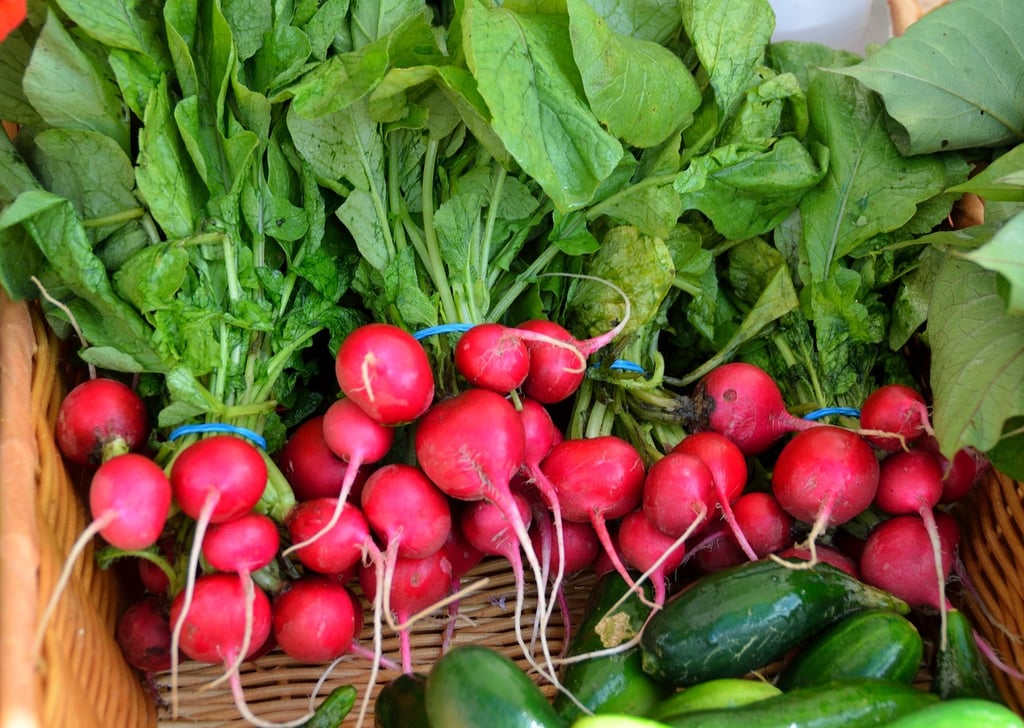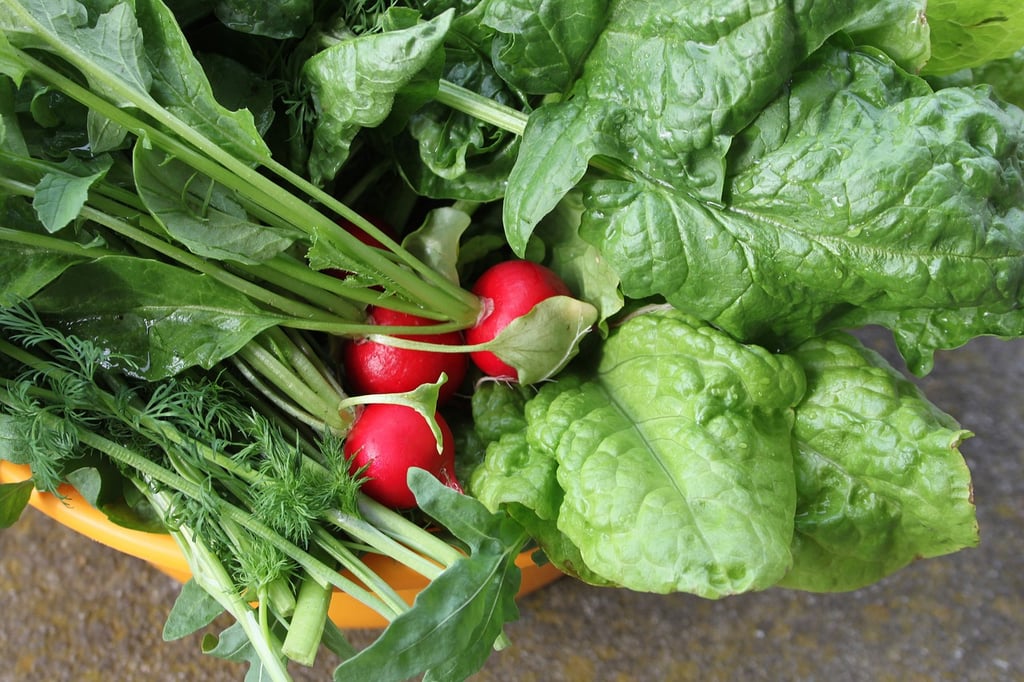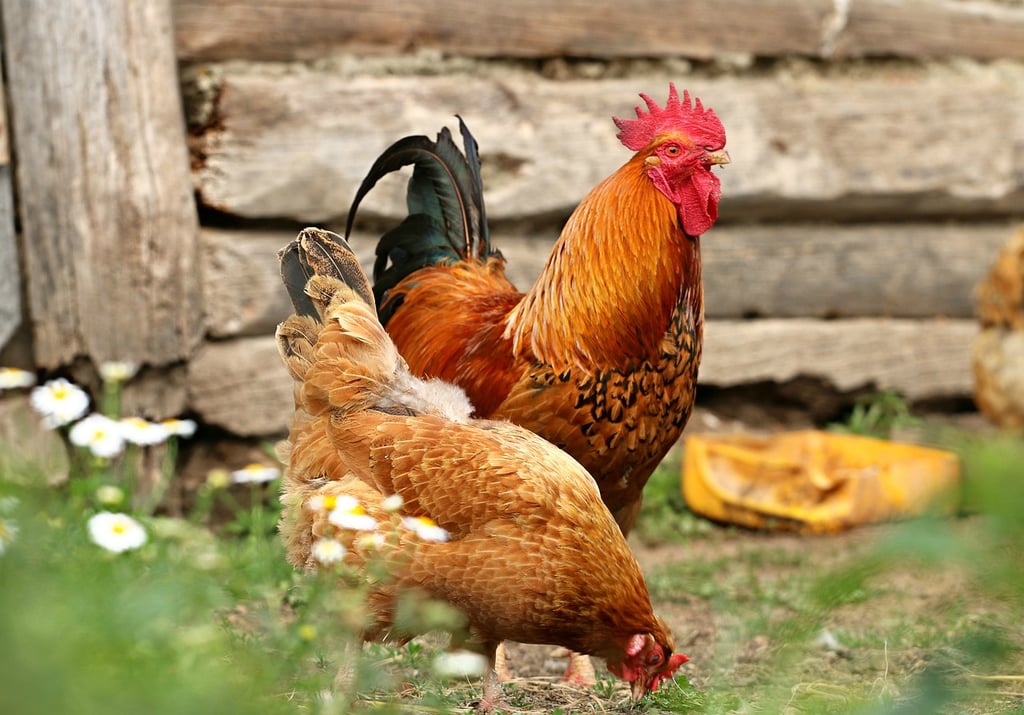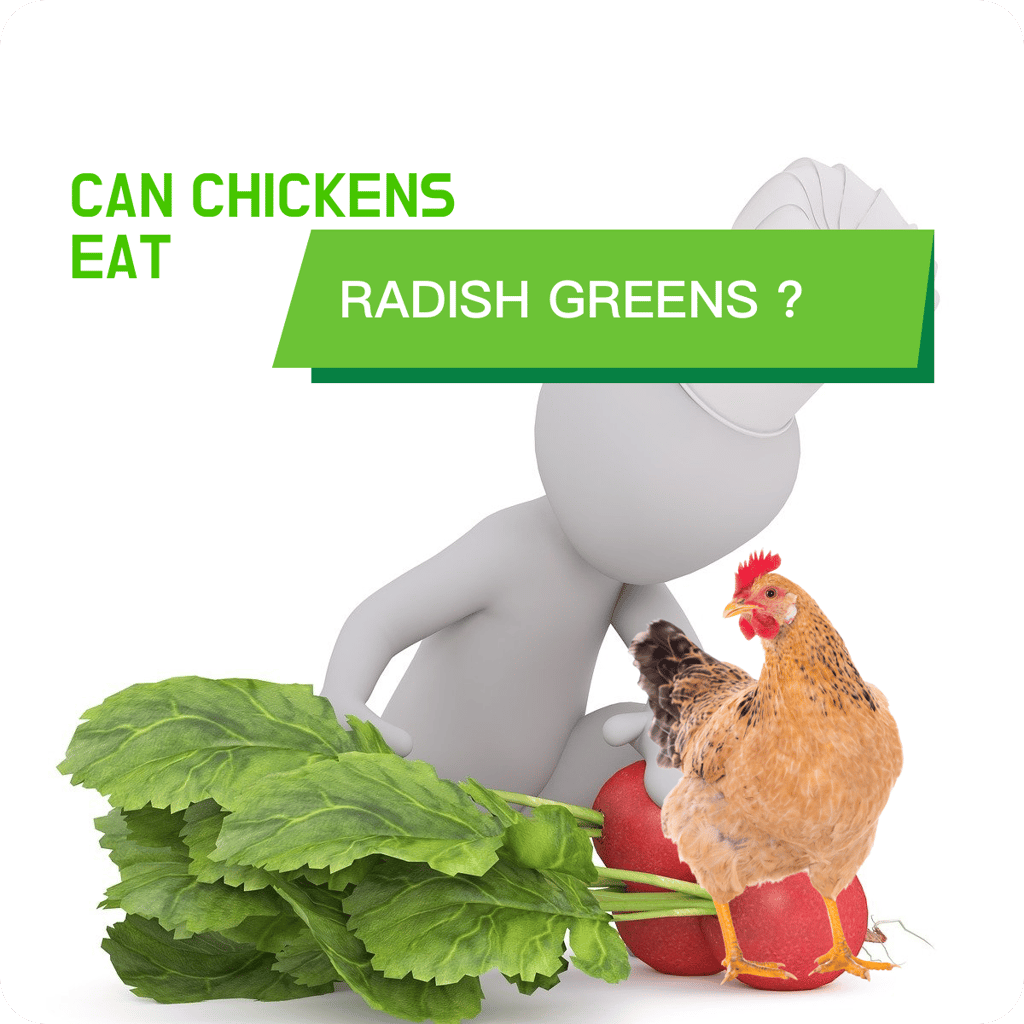Yes, you can feed radish greens to chickens! If you're wondering whether chickens can eat radish greens, the answer is affirmative. Not only do these leafy greens make a great addition to their diet, but they also offer several nutritional benefits. However, it's crucial to be aware of certain considerations before incorporating radish greens into their meals. In this guide, we will explore the nutritional value, potential benefits, and precautions associated with giving radish greens to your feathered friends.

Understanding the Nutritional Value of Radish Greens
Radish greens, the leafy tops of radishes, are often overlooked but can be a nutritious addition to your chickens' diet. These greens are packed with essential vitamins, minerals, and antioxidants that can contribute to the overall health and well-being of your flock.
| Nutrients | Benefits |
|---|---|
| Fiber | Improves digestion and helps regulate bowel movements |
| Vitamin C | Boosts immune system function and fights against diseases |
| Vitamin K | Aids in blood clotting and supports bone health |
| Calcium | Essential for strong bones and eggshell development |
| Iron | Assists in oxygen transportation and prevents anemia |
Including radish greens in your chickens' diet can provide a natural source of these nutrients, helping to enhance their overall nutrition and supporting their health. However, it's important to consider some factors before introducing radish greens to their diet.

Potential Benefits of Including Radish Greens in Chicken Diet
When considering the inclusion of radish greens in your chickens' diet, it's important to understand the potential benefits it can provide. Radish greens are leafy, nutritious greens that can offer various advantages to your flock. Here are some potential benefits:
| Benefit | Description |
|---|---|
| Rich in Vitamins and Minerals | Radish greens contain essential vitamins like vitamin C, vitamin K, vitamin A, and minerals such as calcium, magnesium, and iron. These nutrients contribute to overall good health, bone strength, and proper egg production in chickens. |
| Digestive Health | The fiber content in radish greens can aid in promoting a healthy digestive system for chickens. It can enhance their digestion and help prevent digestive issues like constipation. |
| Immune System Support | The high vitamin C content in radish greens can help boost chickens' immune systems, making them more resistant to diseases and infections. |
| Anti-inflammatory Properties | Radish greens contain compounds that possess anti-inflammatory properties. This can be beneficial for chickens, especially if they are dealing with any inflammatory conditions or joint issues. |
While radish greens offer potential benefits for your chickens, it's important to remember that moderation is key. As with any new food, introduce radish greens gradually into their diet and observe any possible adverse reactions.

Possible Risks and Considerations
While radish greens can offer certain nutritional benefits to chickens, it's important to be aware of potential risks and considerations before introducing them into your flock's diet. Here are some points to keep in mind:
| Risks | Considerations |
|---|---|
|
|
Ultimately, the decision to feed radish greens to your chickens depends on your specific circumstances and risk tolerance. It's always advisable to consult with a veterinarian or poultry nutritionist for personalized advice based on your flock's health and nutritional needs.

Preparing Radish Greens for Chicken Consumption
When feeding radish greens to chickens, it is essential to properly prepare them for consumption. Here are some steps you can follow to ensure the greens are safe and ready for your flock:
- Wash the greens thoroughly: Start by washing the radish greens under running water to remove any dirt, debris, or chemicals that may be present. This step is crucial to avoid potentially harmful substances from being ingested by your chickens.
- Remove any damaged or wilted leaves: Inspect the greens and remove any leaves that appear to be damaged, wilted, or unhealthy. Discarding these leaves prevents your chickens from consuming spoiled or unhealthy parts.
- Chop the greens into small pieces: To make it easier for the chickens to eat, chop the radish greens into small, manageable pieces. This will help prevent any choking hazards and make it more convenient for your flock to enjoy the greens.
- Mix with their regular feed: Once the radish greens are properly prepared, you can mix them with your chickens' regular feed. By blending the greens with their regular diet, you ensure they receive a balanced and varied nutrition.
Remember to provide the prepared radish greens in appropriate quantities. Too much of any new food can cause digestive upset, so it's best to introduce new items gradually and monitor how they affect your chickens.
By following these steps and ensuring the radish greens are prepared safely, you can offer your chickens a nutritious and enjoyable addition to their diet.

Introducing Radish Greens to Your Chickens' Diet Slowly
When introducing any new food to your chickens' diet, it is important to do so gradually to avoid any potential digestive disturbances. This holds true for radish greens as well. Here are some steps to follow:
- Start by offering a small amount of radish greens as a treat, alongside their regular feed. This allows them to get accustomed to the taste and texture without overwhelming their digestive system.
- Observe your chickens' response to radish greens. Pay attention to any signs of indigestion or allergies such as diarrhea or respiratory issues. If you notice any adverse reactions, discontinue feeding them radish greens immediately.
- If your chickens tolerate radish greens well, gradually increase the portion size over a period of several weeks. Monitor their overall health and digestion during this transition phase.
- Ensure that radish greens are given in moderation, not exceeding 10-15% of their total diet. A varied diet including other vegetables, grains, and appropriate amounts of protein and calcium is important for their overall health and egg production.
Remember, each chicken is unique, and their tolerances can vary. It's always a good idea to consult with a poultry nutrition expert or a veterinarian knowledgeable about chicken care if you have any concerns or specific questions regarding your flock's diet.

Alternative Greens for Chickens to Enjoy
Radish greens are the leafy greens that sprout from radish plants. They are not only flavorful but also packed with essential nutrients. Radish greens are an excellent source of vitamins A, C, and K, as well as minerals like iron, calcium, and potassium. These greens also contain dietary fiber, which aids in digestion. Including radish greens in your chickens' diet can provide them with additional nutrients.
Feeding radish greens to your chickens can offer several benefits. The nutritional composition of radish greens supports overall chicken health and immune function. Vitamins A and K contribute to healthy feather growth and bone development. The presence of dietary fiber aids in digestion and can help prevent certain digestive disorders. Additionally, the natural antioxidants found in radish greens may provide some protection against oxidative stress in chickens.
While radish greens can be a nutritious addition to your chickens' diet, it's important to consider some potential risks. As with any new food, it's advisable to introduce radish greens gradually to allow chickens' digestive systems to adjust. Some chickens may not readily accept radish greens, so monitor their response. Also, radish greens contain goitrogens, which can interfere with iodine uptake and affect thyroid function. To mitigate this risk, it's recommended to feed radish greens in moderation and provide a balanced diet.
Before feeding radish greens to your chickens, it's crucial to properly prepare them. Start by washing the greens thoroughly to remove any dirt or impurities. Trim off any wilted or damaged parts and chop the greens finely for easy consumption. Avoid using any seasoning, spices, or oils while preparing radish greens for your chickens, as they do not require any added flavors. Serve the prepared greens in a clean feeding dish suitable for chickens.
To ensure a smooth transition to a new food item, introduce radish greens to your chickens' diet slowly. Begin by offering small quantities, mixed with their regular feed. Observe their reaction and check for any signs of digestive upset or aversion. If the chickens readily consume the greens without any adverse effects, gradually increase the amount of radish greens offered while reducing the proportion of regular feed. Proceed with caution and monitor their consumption and response.
If your chickens do not show a preference for radish greens or if you're looking to diversify their diet, there are several alternative greens you can offer. Some popular options include spinach, kale, lettuce, Swiss chard, and dandelion greens. Ensure the greens are fresh and properly prepared before serving them to your flock. Offering a variety of greens can provide different nutrients and flavors, contributing to a well-rounded diet for your chickens.
Faqs
-
Can chickens eat radish greens every day?
While radish greens can be a healthy addition to a chicken's diet, it is recommended to offer them in moderation. Too much of any green, including radish greens, can upset the balance of nutrients in a chicken's diet. It's best to provide a diverse range of greens to ensure a well-rounded diet for your chickens.
-
Are there any specific precautions to take before feeding radish greens to chickens?
Prior to feeding radish greens to your chickens, it is crucial to wash them thoroughly to remove any dirt or potential contaminants. Additionally, it is important to check that the greens are free from any pesticides or chemicals that could be harmful to your chickens.
-
Can radish greens cause digestive issues in chickens?
While radish greens generally agree with most chickens, individual birds may have varying sensitivities. Some chickens may experience digestive issues such as loose stools if they consume excessive amounts of radish greens. It's advisable to introduce new foods gradually and observe your chickens for any adverse reactions.






